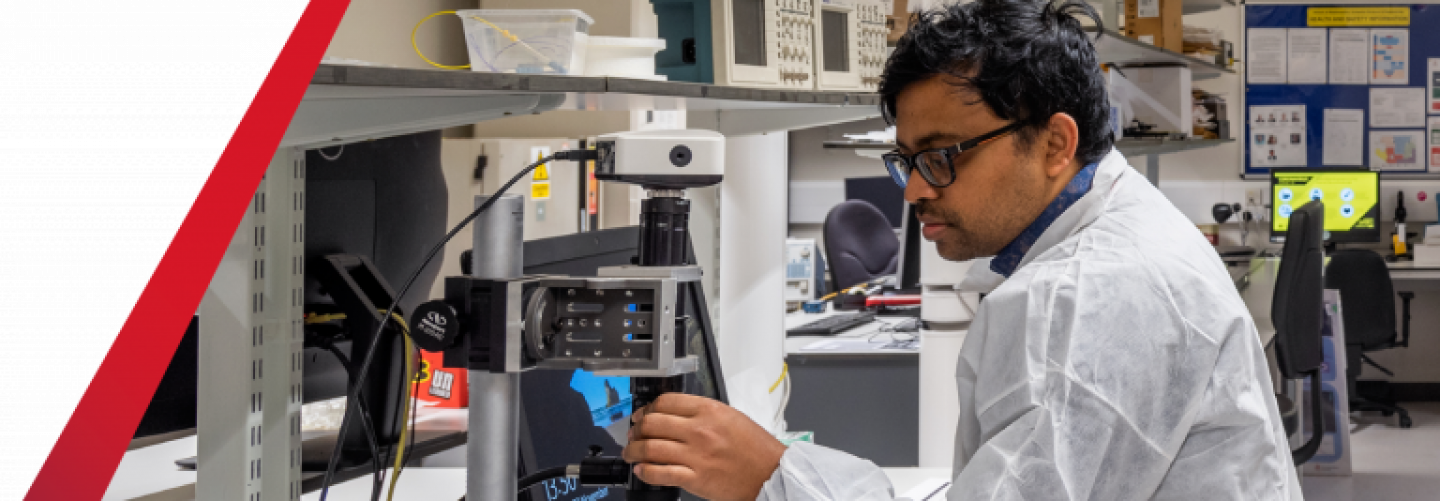She has garnered over 15 years experience in energy and sustainability roles for household brands such as Sainsbury’s, Starbucks, Debenhams, WeWork and Just Eat Takeaway.
By Mr John Stevenson (Senior Communications Officer), Published (Updated )
City, University of London’s School of Science and Technology will honour four of its most outstanding alumni at the second edition of the STEM Alumni Awards on 7th September 2023.
Jaz Rabadia (BEng Mechanical Engineering, First Class, 2006 and MSc Energy, Environmental Technology and Economics, Distinction, 2009), has received ‘Special Recognition’ in the 'Distinguished STEM Alumni Award' category; Dr Fatemeh Najibi (PhD in Computer Science, 2021) has been awarded 'Special Recognition' in the 'Excellence in STEM Achievement' category; Dr Mithileysh Sathiyanarayanan (PhD Computer Science, 2020) has received the ‘Excellence in STEM Achievement Award', while Professor Dame Wendy Hall (MSc Computing, 1986, Honorary Doctorate in Science, 2013) is the recipient of the Distinguished STEM Alumni Award.
Jaz was recently honoured with an MBE and is a Chartered Energy Manager and Fellow of the Energy Institute.
 With over 15 years of experience in energy and sustainability roles for well known brands such as Sainsbury’s, Starbucks, Debenhams, WeWork and now Just Eat Takeaway.com, Jaz has developed a wealth of knowledge covering topics such as energy management, waste reduction, sustainable packaging and social impact. Over the years she has helped these organisations achieve significant reductions in carbon emissions and embed sustainable practices throughout their operations.
With over 15 years of experience in energy and sustainability roles for well known brands such as Sainsbury’s, Starbucks, Debenhams, WeWork and now Just Eat Takeaway.com, Jaz has developed a wealth of knowledge covering topics such as energy management, waste reduction, sustainable packaging and social impact. Over the years she has helped these organisations achieve significant reductions in carbon emissions and embed sustainable practices throughout their operations.
Alongside her executive responsibilities, Jaz has also been appointed to the board of a FTSE 250 company as a non-executive director. Jaz volunteers much of her time as a STEM Ambassador to help raise the awareness of energy and engineering careers, helping to create a pipeline of future energy professionals.
Jaz has shared highlights from her times at City and her professional career with City News.
City News: What were your motivations for studying at City?
Jaz Rabadia: Growing up, I was always interested in how things worked. I loved designing, creating and problem solving and that’s why engineering really appealed to me. My favourite subjects were maths, science and design technology, so studying engineering felt like an opportunity to combine all the things I enjoyed. Although I was really academic throughout school, I unfortunately didn't get the grades I needed in my A-levels. However, I was accepted on the BEng (Mechanical Engineering) course, through clearing at City and was delighted to have been offered a chance to prove myself. Based in the heart of London, equipped with great facilities and serving a diverse mix of students, I knew that City would be a place where I could thrive.CN: What were the highlights and challenges of your undergrad and postgrad degree programmes?
JR: When I was studying, there were very few females studying engineering whether it was aeronautical, automotive or civil and in fact I was the only female on the mechanical engineering course. While it didn’t negatively impact my learning experience, it did make me realise quite early on how important it was to encourage more women into studying STEM. What I thought was brilliant and really valuable in my postgraduate course was the international banckgrounds of the students studying energy as this meant I met and made friends with people from all walks of life. It was challenging completing my Masters whilst working, but it allowed me a unique opportunity to put what I was studying into practice.CN: How did your studies at City assist you to transition into your various roles including your present one at Just Eat?
JR: I’ve always thought of engineering not as what you do, but more how you think. City didn’t just prepare me with the necessary technical knowledge and theory, but it also gave me access to industry practitioners working within the field of energy management, so that I could better understand what a career in the sector would entail. I found this so useful that once I graduated, I would often go back and guest lecture on the course to give students an insight into how the course knowledge is applied in the working world.CN: Why would you recommend City as a place to study STEM and specifically energy transition technologies?
JR: The Energy, Environmental Technology and Economics Masters I studied was fantastic foundation knowledge that gave me the confidence and tools to build on. It was at City that I was introduced to the Energy Institute and other industry bodies allowing me to build a professional network early on in my career.CN: What are the main issues facing the UK in terms of STEM from your perspective as a former student at City and for women in STEM?
JR: STEM is all around us, it’s in everything we do; the phones we use, the modes of transport we travel around on, the buildings that house and school us - STEM practitioners are often behind all the things we take for granted in life, but there is a challenge in encouraging more women to join STEM sectors. Whilst there’s been an improvement in the past 15 years since I left university, there is still more to be done. The more people (especially women) we can encourage into STEM fields, the safer, healthier, smarter and more sustainable the world will hopefully become.
